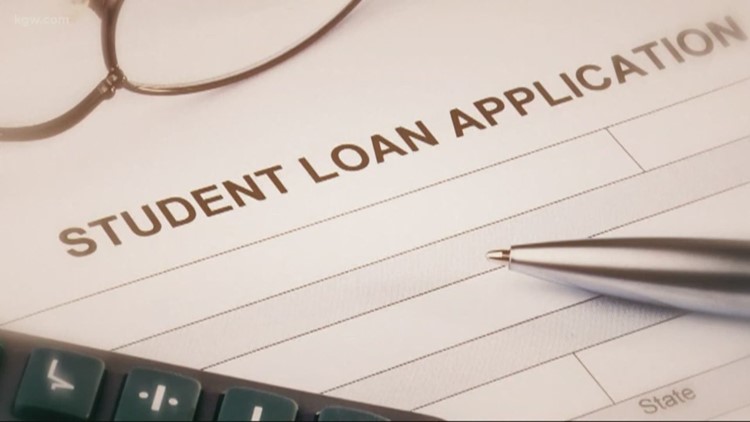PORTLAND, Oregon — Millions of people who've fallen behind on student loan payments must now start repaying them or face a debt collector. Monday's announcement from the Department of Education ends a pandemic-era policy that let loan defaults slide. Involuntary collection begins May 5.
For some students, it will be the first time they've ever had to confront the obligation of repaying their debt. "It's a little scary," said Portland State University student Ella Dansky. "With the tariffs that are happening right now things are not cheep, and we can't afford to pay for anything especially the loans.

" The Trump administration suggested that after five years, borrowers have had enough time to start paying off their loans. Still, the new financial reality is hitting several students like a ton of textbooks. "I am in the back of my head thinking, what am I going to do with this new debt when I'm out of here?" said PSU grad student, Steve Palmer.
"That's how [Trump's] transactional White House is kind of operating right now." Starting May 5, the Education Department will start collecting on student loans in default, to include garnishing wages. Officials said right now, around 5.
3 million federal student loans are in default. "American taxpayers will no longer be forced to serve as collateral for irresponsible student loan policies," said Education Secretary, Linda McMahon. "Student loans must always be paid back because they are unlike other types of consumer loans.
If a borrower stops paying a mortgage or a car payment, he will go into foreclosure or find his car repossessed. Student loans have no collateral. It is impossible to repossess a college degree.
" For several years, US Representative Suzanne Bonamici has been hosting "Student loan forgiveness webinars," hoping to help students struggling financially. She said her experience paints a different picture of students navigating college debt. "Most people are trying to pay back their student loans," said Bonamici.
"It's not like oh, I'm just going to go to college and get a free ride. That's not what's happening, and this administration doesn't understand that because as I said, they're out of touch." Bonamici invited Oregonians to reach out to her office for help dealing with student loans in default.
She also suggested the Office of the Ombudsman at the state's Department of Consumer and Business Services is a good resource. The Education Department urged borrowers in default to do one of three things:.
Politics

'It's a little scary': Millions of people behind on student loans must start paying or face a debt collector

Involuntary collection begins May 5. For some students, it will be the first time they've ever had to confront the obligation of repaying their debt.















